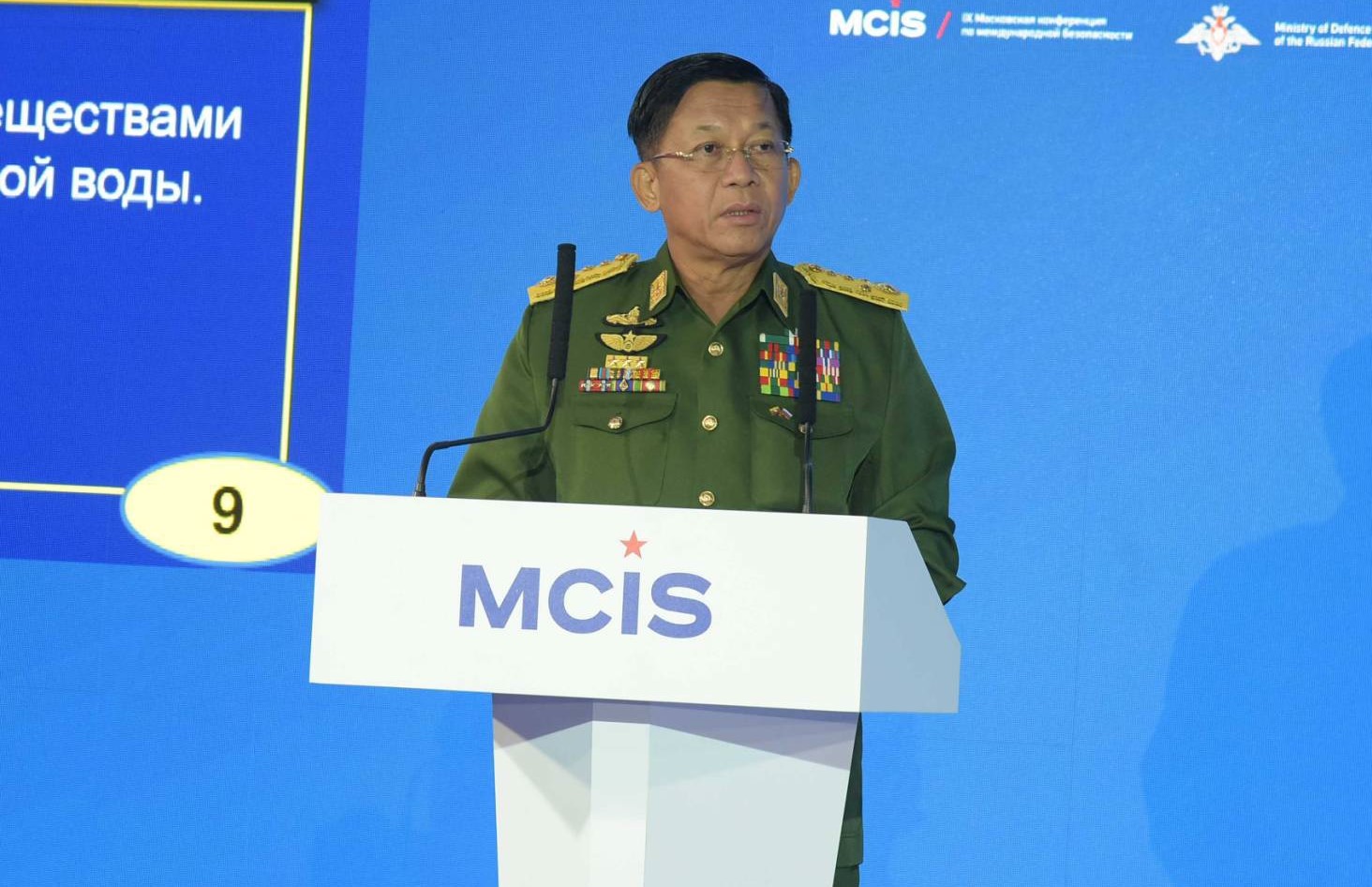It took 17 years to draft and promulgate Myanmar’s pro-military constitution. Blatantly undemocratic, the 2008 charter guarantees—for a start—that 25 percent of the seats in the country’s Union Parliament are reserved for military personnel.
Drafted by a previous unelected military junta with the help of some ethnic representatives and forced through a deeply flawed referendum process in 2008, the constitution enshrines a political system that is designed to preserve the generals’ power.
The charter ensures that the military retains a powerful role not only in the executive branch of government but also in many aspects of national politics.
Aside from its unelected representatives occupying a quarter of parliamentary seats, the military is guaranteed control of three security-related ministries: Defense, Home Affairs and Border Affairs.
Among the powers constitutionally granted to the military is the authority to take charge during a state of emergency. One power the constitution does not give the commander-in-chief, however, is the right to stage a coup against an elected government.
The constitution states that the President has the executive power to declare a state of emergency, after consulting and coordinating with the military-dominated National Defense and Security Council (NDSC).
In fact, there was a time when critics of the undemocratic charter said it was so pro-military that it made the prospect of another military coup highly unlikely.
How wrong they were.
Alleging that last November’s general election was marred by large-scale election fraud, the military staged a coup on Feb. 1, invoking Article 417 of the constitution and declaring a state of emergency.
Article 417 requires the President to declare a state of emergency when there is a risk to the sovereignty of the country.
Article 418 then requires the President to hand over all power to the Commander-in-Chief of Defense Services.
Contrary to this provision, in February the state of emergency was declared by the vice-president, U Myint Swe, soon after the military detained President U Win Myint.
The constitution’s Article 73 (a) states that one of the two vice presidents—the one who won the second-highest number of votes in the presidential election—shall serve as Acting President “if the office of the President falls vacant due to his resignation, death, permanent disability or any other reason.”
However, given the then president’s refusal to resign, it’s hard to say that Article 73 provides valid support for U Myint Swe’s acting presidency, let alone the coup.
On the morning of the coup, President U Win Myint and State Counselor Daw Aung San Suu Kyi were arrested and several government ministers were detained. Since then, U Myint Swe has disappeared from public view and has been absent from official functions.
In April, when Min Aung Hlaing flew to Jakarta to attend a special ASEAN meeting, he told leaders from the regional bloc that the military had constitutionally assumed the state’s responsibilities. He was lying.

In reality, the coup in Myanmar can be regarded as unconstitutional, since there was no legal rationale for it. Therefore, the declaration of a state of emergency was unlawful, as was the takeover.
The West and ASEAN likely share the same opinion on the legality of the coup in Myanmar, which is that military chief Senior General Min Aung Hlaing and his generals breached the constitution and seized power illegally.
Members of ASEAN, including Brunei, the current chair of the bloc, have expressed doubt that the coup was legal since the turmoil erupted in Myanmar early this year.
Further proof that their doubt is justified came early this month, when Myanmar’s ousted civilian President U Win Myint said while giving testimony in his court trial that senior army officers ordered him to resign on the day of the coup, but he told them he would rather die than consent.
On the morning of the takeover, two high-ranking army officers entered his room at the Presidential Residence in Naypyitaw and attempted to persuade him to resign from his post on grounds of ill health, his lawyer quoted him as telling the court.
The President turned down their proposal, saying he was in good health.
“The officers warned him the denial would cause him much harm but the President told them he would rather die than consent,” said lawyer U Khin Maung Zaw.
A lawyer said, “The President has notified the entire nation as well as the world, through the court, that the takeover violates the Constitution.”
“It is the strongest evidence that they [military leaders] committed high treason as [it comes from] the head of state himself,” he said.
U Win Myint’s testimony offers proof, if it was needed, that the coup was illegal. The testimony justified the decision by ASEAN and chair Brunei to exclude the coup leader from its summit starting today.
The message is clear: Snr-Gen Min Aug Hlaing has no legal right to represent Myanmar at an ASEAN Summit. ASEAN instead invited a non-political person to attend. The regime turned down the invitation, however, saying it can only accept the participation of the head of state or a ministerial-level representative.
The country’s seat at the summit today is empty.
You may also like these stories:
Post-Election Palm Reading as Myanmar’s Vote Nears
The Sinners Against Myanmar’s Elections
A Few Predictions for Myanmar’s Upcoming Election
















